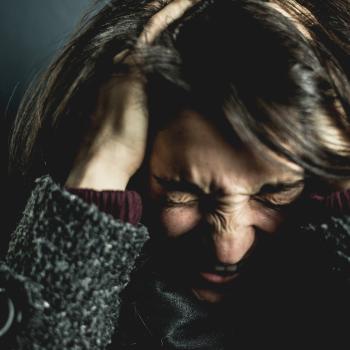On September 11, 2001 I was on vacation on the Jersey shore—far enough away from Ground Zero to be physically unaffected by the fall of the towers. But I was also in a part of the country where the "melting pot" diversity includes large Muslim and Sikh communities. As the days following the attacks unfolded, and we pried ourselves away from our TV sets, I began to hear conversations and comments about who Muslims are, what they believe and what the Qur'an says, usually with incorrect information and oftentimes with ethnic slurs. Not everyone joined in with these sentiments, but enough for me to know how important it would be for the religious communities to respond.
And they did. Looking back, I can see changes in three areas that we can attribute to the tragic events and days following 9/11.
First, people of other religious traditions wanted to learn about Islam. In my congregation, by request, we began a study of all the world's religions. But it was courses and seminars in Islam in particular that began to crop up everywhere. We knew that we needed to deal with our own ignorance, not just for our own edification, but to be able to counteract the misinformation that was being thrown about.
Opportunities for education and cooperation ranged from the congregational level up to institutes of higher learning. At the Graduate Theological Union in Berkeley, CA (GTU), the Center for Islamic Studies was founded in 2007 and became part of an interfaith consortium of religious graduate schools that includes the Center for Jewish Studies, the Institute of Buddhist Studies, as well as seminaries affiliated with Catholic and Protestant denominations.
While we have a long way to go in educating people about who Muslims are, what they believe and what the Qur'an says, we have made great strides in providing factual information about one another's religious traditions.
Second, the Muslim community reached out. The mosque located in my church's neighborhood held an open house where members not only greeted us with refreshments but offered tours and invited questions. For many in the Christian community, it was the first time they had been inside a mosque; the invitation enabled neighbors to get to know one another. Since 9/11, many congregations, synagogues and mosques have been partnering for discussion groups, dinners, holidays, and community projects.
The third thing that happened was that interfaith cooperation increased—because the roots were already there! In Western New York, the Network of Religious Communities was already a longstanding presence, so there was a mechanism in place to mobilize the response to 9/11.
In the San Francisco Bay area, where I serve now, the reaction was the same. As Rita Semel, the president of the Interfaith Center at the Presidio and vice-chair of the San Francisco Interfaith Council, said: "Because of all the relationships we had built before, after 9/11 we could build on and strengthen those relationships."
One of the ways that happened was in becoming more sensitive to the stresses and strains that the Muslim community was experiencing. When a turban-wearing Sikh man was murdered shortly after 9/11, the Interfaith Council issued a statement condemning religiously motivated violence. Later statements addressed anti-Muslim reaction after the shootings at Fort Hood and the congressional hearings called by Rep. Peter King.
As Ms. Semel observed, "There are all kinds of people in every group; we have to avoid stereotypes. We've all been stereotyped at one time or another."
The building on this foundation continues. In 2011, the Silicon Valley Interreligious Council (SiVIC) became the newest interfaith organization in the Bay Area. The Muslim community, a significant presence in Fremont and Newark, has been part of the organization of the council from its inception.
Today, plans are well underway for 9/11 commemorations. In San Francisco, Mozart's Requiem will be performed, interspersed with meditational texts read by representatives of various religious traditions that make up the San Francisco Interfaith Council. In addition, one of the main speakers will be a prominent Muslim community leader.
While the tone of the commemoration will be somber and reflective, the program will also be the witness to the solidarity of the religious community - as we move into the future together.




